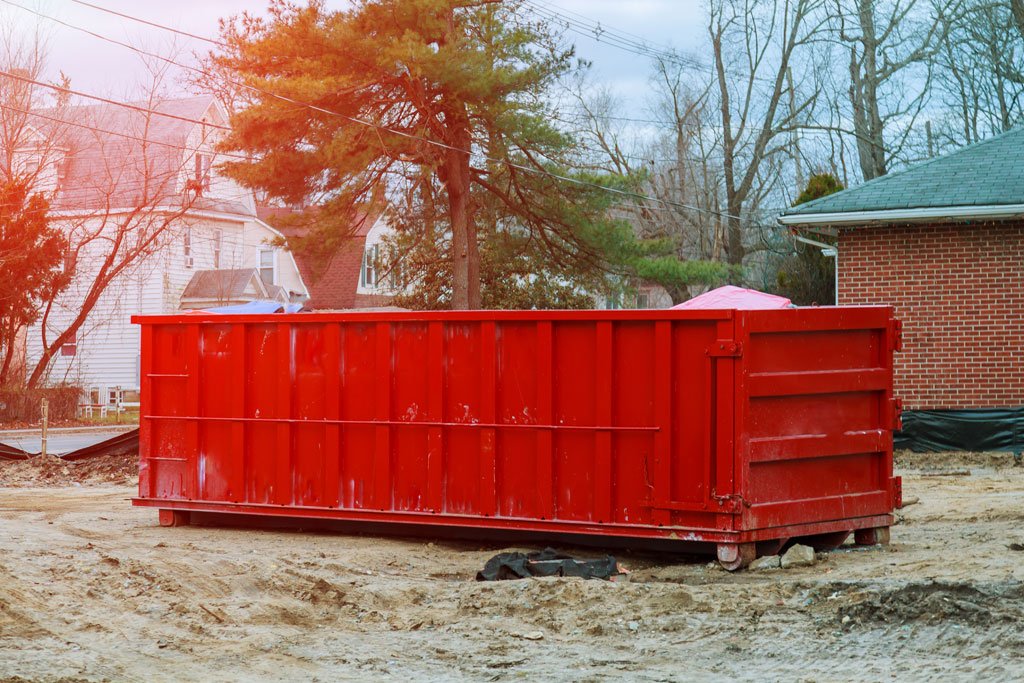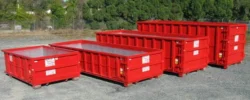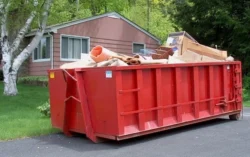When you’re getting ready for a roofing project, the last thing you want to worry about is how you’re going to get rid of the old shingles. That’s where renting a roll-off dumpster comes in handy. But, not all dumpster sizes can handle the weight of your shingles. That’s why it’s important to do some calculating before deciding which dumpster size to rent. So, check out this guide on how to rent a roll-off dumpster for your roofing project and what to consider before ordering one.
Types of Shingles
There are different types of asphalt shingles, two of which are the following: 3-tab and architectural. Asphalt 3-tab shingles are the most common type and are lighter weight than asphalt architectural shingles. One “square” of 3-tab shingles (“square” meaning 100-square feet of shingles) weighs on average between 230-250 pounds. One square of architectural shingles, however, weighs on average between 400-430 pounds.
Other types of shingles include asphalt fiberglass shingles, wood shingles, clay tile shingles, slate shingles, solar shingles, and more. Many of these shingles weigh even more than the asphalt 3-tab and architectural shingles! So, before starting your roofing project, and before ordering the dumpster for your project, be sure to find out what type of shingle you have on your roof. If you have a heavier shingle, make sure you calculate the extra weight allowance (and potentially the extra space allowance) needed for your quantity and type of shingles.
Roll-off Dumpster Sizes
As just mentioned, not all roll-off dumpster sizes will be sufficient for the space and weight you need for your project. In fact, some dumpsters might only be able to hold three or four squares of shingles. Or, some dumpsters might be large enough for the space you need, but they might not be able to support the weight of the materials or vice versa. So, again, make sure you order the roll-off dumpster that’s right for your project.
Most roll-off dumpster sizes come in yards. For example, you can order a 20-yard dumpster, a 30-yard dumpster, and so on. Some companies also offer smaller-sized dumpsters such as 12-yard or 15-yard containers. When it comes to pricing, many dumpster companies include a certain amount of weight with your order, but if you exceed that limit, they’ll charge you for additional pounds. This is another reason why it’s important to know what type of shingles you have and how many layers of shingles are on your roof… you don’t want to accidentally spend more than you were planning on!
Questions to Ask
Figuring out the weight, size, and pricing of shingles, roll-off dumpsters, and so on can be so overwhelming! So, if you find yourself caught in a rut, just pick up the phone. Many dumpster companies, like redbox+ Minneapolis dumpster rental, will gladly talk to you on the phone and help you determine what dumpster size will be best for your needs.
When you call a dumpster company to get more information or place an order, here are some questions that might be helpful for you to ask:
- How much space do I need?
- How much weight can the roll-off dumpster hold? (Again, if this limit is exceeded additional fees will incur.)
- What type of shingles can go in the roll-off container?
Many rental companies have certain rules on what materials they will accept or if they want you to separate anything out. So, pick up the phone and make your project process a little easier.
Items to Recycle
As mentioned above, when renting your dumpster for shingles, always ask the rental company if they want you to separate anything out. Some companies prefer that you separate shingles from other roofing debris because shingles are recyclable. And shingles are often cheaper to recycle than to dispose of via landfill. Why? Because recycling shingles helps the environment by providing material for roads, parking lots, and more.
In some cases, however, the rental company might not want you to recycle the shingles because they’re too broken and will contaminate the other recycling materials. So it’s always best to ask!
If your rental company does want you to separate out the shingles for recycling, there are a few things you need to do:
- Make sure all of the nails are removed from the shingles. If any nails are left in the asphalt or concrete, they could cause damage to recycling equipment.
- Separate different types of roofing materials. For example, if you have both asphalt and wood shingles on your roof, make sure you keep them separated when putting them into your roll-off dumpster.
Money-Saving Tips
Finally, with all the hustle and bustle of figuring out which roll-off dumpster to rent, how large it needs to be, how much it’ll cost, and so forth, you probably won’t want to tack on some extra rental fees. So, to save a little money and a lot of heartaches, follow the following tips.
- Order your dumpster for a longer period of time than you think you’ll need it. This will help keep the rental fees down.
- Order a dumpster that’s larger than the size you’ve estimated it needs to be (this, again, saves you from overage fees).
- Make sure you know exactly how much weight your roll-off dumpster can hold before filling it.
- Ask about any discounts or promotions happening at the moment.
These are just a few tips, but by following them, you’ll be on your way to having a much more affordable roofing project.
Conclusion
Renting a dumpster for your roofing shingle project can be tricky. And with so many factors to consider, it’s hard to know where to start. That’s why we’ve put together this guide on how to find the roll-off-dumpster size that’s great for you! And on what things to consider, such as weight of shingles and size of shingles, before determining the size of roll-off dumpster you need. When you’re ready to rent your dumpster, don’t forget to ask your rental company about recycling shingles and what type of debris they will accept. And finally, remember the money-saving tips above to make sure you’re not breaking the bank on your roofing project!







